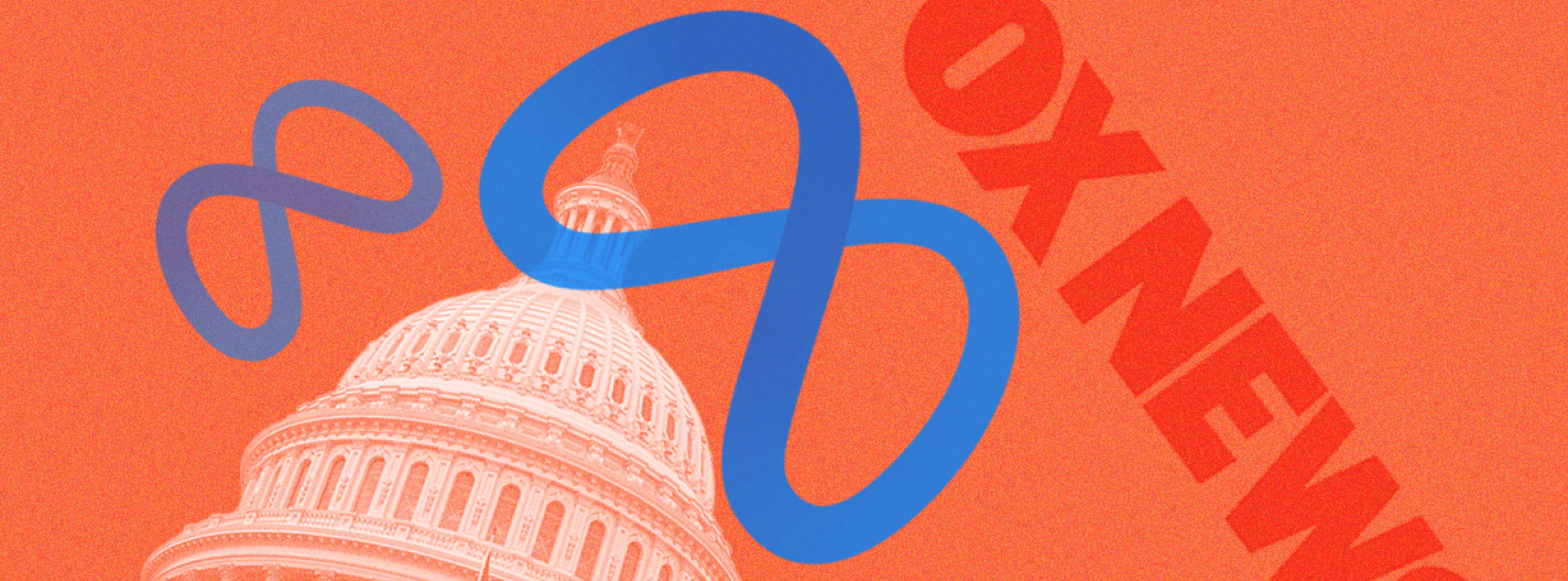Meta, Fox News, and the collapse of the anti-January 6 consensus
Written by Matt Gertz
Published
Meta’s Wednesday announcement that it plans to let former President Donald Trump back on the Facebook account he used to encourage the January 6 insurrection is perhaps the final sign that the right’s propagandists have demolished the consensus that the Trumpist riot at the U.S. Capitol was a horrific event and that there should be accountability to prevent it from happening again.
It seemed for a brief period after the smoke cleared from the Capitol on January 6, 2021, that America’s sclerotic and oft-maligned institutions might bestir themselves to rise to the defense of the nation’s democratic principles.
In government, Republican leaders like Sen. Mitch McConnell (R-KY) and Rep. Kevin McCarthy (R-CA) — even Trumpist lickspittles like Sen. Lindsey Graham (R-SC) — vocally denounced the former president’s actions, with some of the party’s governors going so far as to call for him to leave office.
In corporate America, a flood of blue-chip companies announced that they would terminate or suspend donations to the Republican members of Congress who voted against certifying the electoral votes of one or more states. Even staid trade groups like the National Manufacturers Association condemned the mob and Trump’s role in fomenting it.
In the press, journalists contemplated whether it might be appropriate to refuse TV airtime to Republican members of Congress who had encouraged the insurrectionists by denying the election results.
And in social media, platforms like Facebook and Twitter recognized the role they had played in helping Trump stoke his supporters’ ire and the devastating consequences thereof, and cut the former president and some of his most incendiary allies off from their accounts.
But Fox News and its allies on the right quickly went to work unraveling that fragile consensus. They successfully convinced the GOP to adopt the narrative that criticisms of Trump’s plot to overturn the 2020 election through lies, subversion, and finally mob violence had been overblown, and in fact that Republicans had been the real victims of Democratic overreach.
The very night of the mob attack, Fox’s stars began validating the actions of the Trumpist mob, minimizing the violence and suggesting that leftist infiltrators might have been to blame. In the weeks that followed, they downplayed the former president’s responsibility for the mob’s actions; concocted an alternate reality in which the actions of a relatively sedate crowd were being used by sinister Democrats as a pretext to punish average Republicans; and mocked the law enforcement officials who were assaulted during the attack and denounced the Democrats and Republicans who took their reports seriously.
In service of their duplicitous narrative, they lifted up from kooks and internet fever swamps false-flag conspiracy theories that the federal government was behind the attack; valorized the “patriots” jailed for their alleged participation; and shielded their viewers from contrary evidence.
This treatment of the attack by Fox and other right-wing media outlets helped create a sea change within the Republican Party. As the GOP’s volatile commentators whipped up its base, party leaders swiftly determined that there was no political future in standing firmly against Trump and the mob he had encouraged. Some backed off their prior condemnations while others who remained vocally against Trump’s attempt to unlawfully retain power were purged. The House GOP swelled its ranks in the 2022 midterms with even more election deniers; they are a power center that its leadership courts and rewards with slots on key committees.
With only one of the nation’s two major political parties willing to forthrightly oppose the attempted coup, insurrection became a partisan issue and the national consensus collapsed. Major companies abandoned their promises not to fund the campaigns of election deniers, who also found themselves invited back to major national TV news programs. And after right-wing billionaire Elon Musk took control of Twitter, he lifted Trump’s ban.
And now Trump will be back on Facebook, too. This is a manifestly terrible idea with dire potential consequences – Trump used Facebook to fuel the bigotry and violence of his hardcore supporters and channel support for the insurrection; he has shown no remorse whatsoever for his actions and in fact still claims the election was rigged against him; and he has spent his suspension from mainstream platforms using his own Truth Social to push virulent election denial and violent QAnon conspiracy theories. In allowing him back on their platform, Meta executives are making themselves responsible for any effort Trump makes to generate another January 6.
But without a national consensus that there is a public interest in preventing a recurrence of Trumpist violence, Meta’s pecuniary and political interests returned to the fore. Facebook’s user growth has stalled out, helping to send its parent company into a spiral. Trump’s return to the platform might give it a boost; so might the return of his campaign’s massive ad spending as the 2024 presidential election heats up (Trump’s personal page is the largest buyer of Facebook political ads since 2018, spending more than $113 million). And Meta’s leadership likely hoped to avoid a contentious public hearing about why the former president was not welcome on Facebook, since “we don’t want him to use it to promote a coup” was apparently no longer an effective response with insurrectionist Republicans running the House.
Fox and the broader right-wing information ecosystem manufactured dissent, helping to keep the GOP on the side of Trump and his insurrectionists and grinding away at the political consensus against the storming of the Capitol. As long as the Republican Party remains trapped within its bubble, the American public will have to reckon with the influence of these bomb-throwing propagandists.
